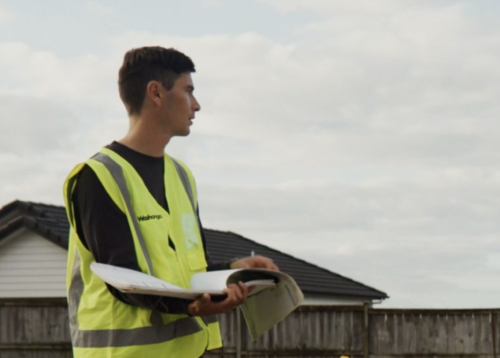Bringing Your Idea To Life - Starting A Business In NZ
Ready to take your skills and ideas to the world and finally be your own boss? Here’s a starting out guide to the nuts and bolts of setting up a business in New Zealand.
Check your business idea will work
Whether you’re out to make a fortune or simply earn a living doing something you enjoy, it pays to start by checking whether your brilliant idea is likely to deliver the goods. Enthusiasm is an essential ingredient for success, but on its own it can quickly drain your wallet.
Creating a business plan is one of the best ways to get everything out in the open, so you can think it all through. You’ll also likely need one if you plan to borrow money.
So, how do you write a business plan? Start with a quick online search for free business plan templates in nz. Many templates come with helpful tips and explanations; check out a few and find one that feels right for you and your business.
Give your business a name
This can take a lot of time and energy, but it’s a really important step. Ideally you’ll find something that describes what you offer, is easy to remember and is unique. In some cases it can make sense to include your own name, like Mary’s Cakes, or even a made up name. You can join words together, like TradeMe, or create an entirely new word like Snapchat.
Sometimes a quick brainstorm can be helpful. Just write down all the names you can think of, no matter how crazy they are. After 10 minutes, stop and begin several rounds of eliminating the ones you don’t like or that won’t work. Eventually you’ll end up with a small number you can test.
The Ministry of Business, Innovation and Employment (MBIE) has a great online tool called ONECheck. It lets you quickly see whether a name has already been used for a registered business, website, social media username or trade mark.
Pick a business structure
The most common structures in New Zealand are company, partnership or sole trader. Which one’s best for you comes down to who will be responsible for the income and losses, i.e. a separate legal entity, a group of people or just you. There are other options too, like trusts, unlimited companies, look-through companies and societies. Choosing the right structure is important. There are different costs, rules, responsibilities and liabilities involved. Be sure to get professional advice from a lawyer, accountant or business advisor before you decide. The Inland Revenue website has more about business structures.
Protect your business name
Once you’ve checked your business name doesn’t belong to someone else, it’s time to prevent others from using it. A small investment at this stage can save a lot of heartache later on.
The first step is to register your own web address (domain name) with an authorised registrar. You don’t have to have a website ready yet. If you have a website provider in mind, they can probably sort the domain name registration for you. But doing it yourself is quick, easy and doesn’t cost much at all. The Domain Name Commission website lets you check whether a web address is available and help you to find authorised registrars.
If you’ve decided to set up your business as a company, you can reserve a company name online with the Companies Office for a small fee. You’ll need a RealMe® login, which can also be used to prove your identity with all sorts of online services, like Inland Revenue. If you don’t already have one, simply set one up from the login page. After reserving your company name you have 20 days to incorporate (register) your company before your name reservation expires.
A trade mark can help distinguish your business from others and legally deter others from trying to imitate your brand. You can trade mark words, logos, colours, shapes, sounds, smells or any combination of these. If you want to register a trade mark for your product or service, you should first get a search and preliminary advice report from the Intellectual Property Office of New Zealand (IPONZ). The IPONZ website has more on how to choose, search and apply for a trade mark.
Register for a unique business number
When you register a company you’ll automatically get a New Zealand Business Number (NZBN). It gives your business a unique identifier, like the number plate for your car. An NZBN makes it easy to let people know about your business, because they can use it to find information, like your trading name, email or phone number. It also provides evidence of your business credibility. Self-employed people, sole traders and partnerships can register for a free NZBN online.
Check for regulations affecting your business
Important local and central government regulations may apply to your operating region or industry. These might include food licencing, playing music in your business, fair trading, getting building consents, privacy, consumer guarantees, health and safety and more. It’s also worth making sure you have the necessary insurance to ensure that you are adequately covered.
It’s essential to identify these before your start trading. If you accidentally end up on the wrong side of the law, your business might have to stop trading for a while or pay fines that could ruin your cash flow. Check the websites of your local council and industry bodies related to your business. To help with central government compliance, the MBIE has a handy searchable tool called Compliance Matters. It includes content from lots of government entities, like ACC, The Commerce Commission, Inland Revenue and WorkSafe New Zealand.
Register your company
If you want your business structure to be a company and you’ve researched and reserved a name, it’s time to get your company registered (incorporated). It’s easy to do this online, but there are a few things you’ll need to have ready. These include your company contact details, the company directors’ details, and details of the shareholders and how many shares each one will hold.
The Companies Office will email consent forms for your directors and shareholders to sign and return within 20 days. As part of the process, you can also choose to get the company’s IRD and GST numbers and register as an employer. There’s quite a lot to do, but the Companies Office website has easy step-by-step instructions to help you get sorted. See how to register a company.
Register for GST
If you decided to structure your business as a company, you can register for GST as part of the company registration process. If you chose another structure and your business will earn more than $60,000 a year, or GST is included in your prices, you’ll need to register for GST with Inland Revenue.
As well as having an IRD number, you’ll need to know whether you want to claim and return GST based on payments or invoices, how often you want to file returns and your business industry classification code. The Inland Revenue website has helpful videos and easy step-by-step instructions on getting ready, registering online and what you need to keep doing after that. See how to register for GST.
Think about Insurance
We know how busy you are, and owning or setting up a small business takes 'busy' to a whole new level. Let us handle some of the stress for you, so you can get back to what you love.
Insurance can be tricky. We get it. It’s a necessary evil. We’re not offended. We’re all about clear and no-nonsense get-on-with-it business insurance.
You might also like...
-
 March 2023Business Blog | State Insurance
March 2023Business Blog | State InsuranceThe pitfalls and dangers of running a business
-
 March 2023Business Blog | State Insurance
March 2023Business Blog | State InsuranceHow to grow a business and take risks
-
 October 2022Business Blog | State Insurance
October 2022Business Blog | State InsuranceSmall Biz Support
